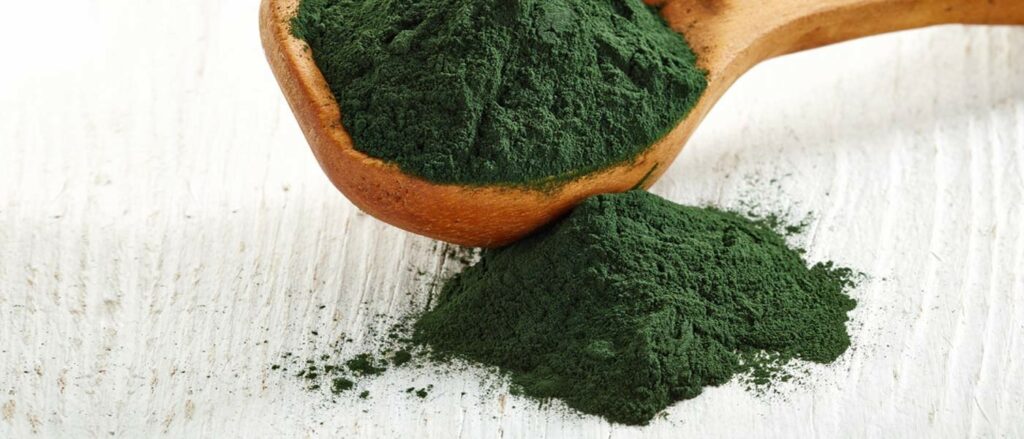What Is Spirulina? Know The Benefits & Who Should Take It

Spirulina, a blue-green alga found in water bodies is the new age superfood. Even though it is not very famous, it is one of the most nutrient dense food item available today. To start with 1 teaspoon or 7 gms of spirulina contains 4 gm protein and just 20 Kcal with 1.6 gm carbohydrate, along with being high protein, it is an excellent source of vitamin B, K, iron, niacin, folate and other nutrients. It is usually taken as a health supplement and available in the form of powder, capsules or tablet form.
Health benefits:
- Detoxification: Spirulina has detoxification powers and can detoxify heavy metals such as arsenic from the body. As per a research, it was found that people who consumed it along with zinc had 47% lesser arsenic content in their body.
- Prevents cancer: It is rich in phycocyanin an antioxidant that prevents oxidative stress and is anti-inflammatory in nature. Free radicals and oxidative stress are one of the major causes of cancer and phycocyanin help settle free radicals.
- Lowers cholesterol: One of the proven benefits of spirulina is that it reduces LDL cholesterol and triglyceride levels, it has been found that by consuming 1 gm of spirulina per day can lower LDL levels by 10.1% and triglycerides by 16.3 %.
- Lower Blood pressure: Phycocyanin present in spirulina has an antihypertensive effect on the body,
- Anti-allergic: Spirulina has a very promising effect on allergies such as allergic rhinitis. Allergic rhinitis is an environmental allergy caused due to pollens, animal hair and wheat dust often characterized by a runny nose, congestion and itching. Daily consumption of spirulina is known to fight the allergic reactions of the body and also boosts immunity.
- Beneficial in diabetes: Spirulina supplementation can improve the functioning of liver enzymes which can help in regulating insulin production and controlling blood sugar levels.
- Weight loss: Since it is rich in protein and fibre it works as an appetite suppressant and is also low calorie, therefore it aids weight loss and provides satiety.
Recommended dosage:
There is no standardized dose set by FDA but the following are recommended doses:
- For cholesterol and obesity management: 1-8 gms per day
- For muscle performance: 2-7.5 gms per day
- For blood pressure management: 3.5-4.5 gms per day
- For diabetes management: 2 gms per day has shown a mild effect
- In the case of fatty liver: 4.5 gms per day
Who should avoid it?
Some people may get a headache, allergic reactions, sweating, and insomnia as a side effect. People who have autoimmune disorders such as gout, kidney stones, phenylketonuria or those who are pregnant or lactating should avoid the consumption of spirulina. It is always advised to consume lab tested spirulina since it is usually grown in the wild, it can absorb toxins, pollutants and heavy metals from the water.



 Home
Home 
Way cool! Some extremely valid points! I appreciate you writing this write-up and also the rest of the site is extremely good.
Wow cuz this is great work! Congrats and keep itt up!
Hi there to every body, it’s my first pay a quick visit oof this website; this blog contains awesome and genuinely excellnt dataa for visitors.